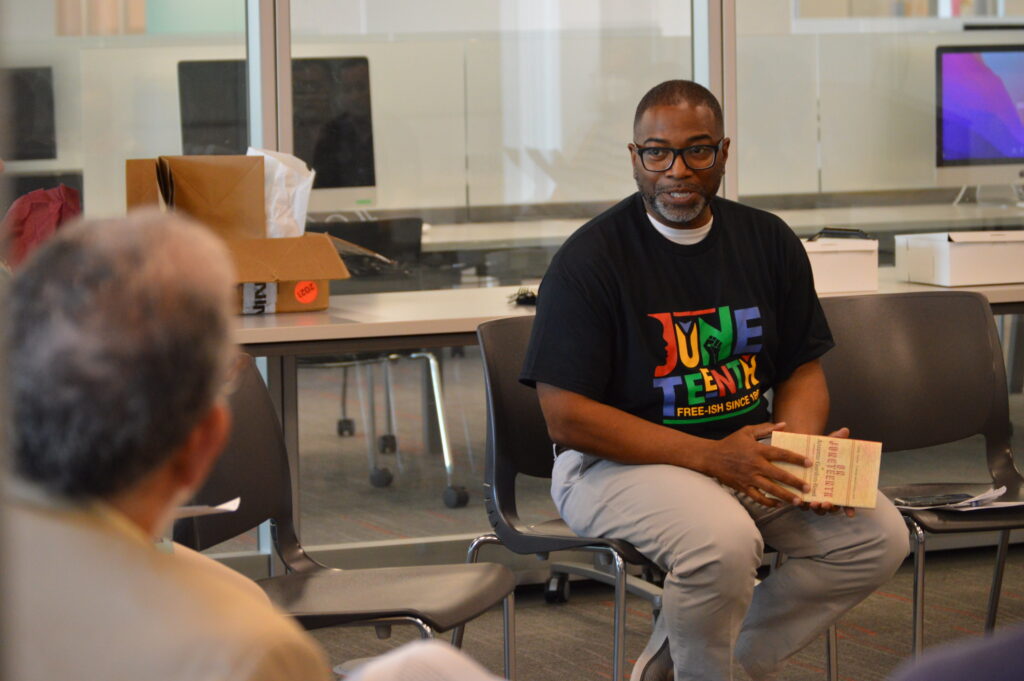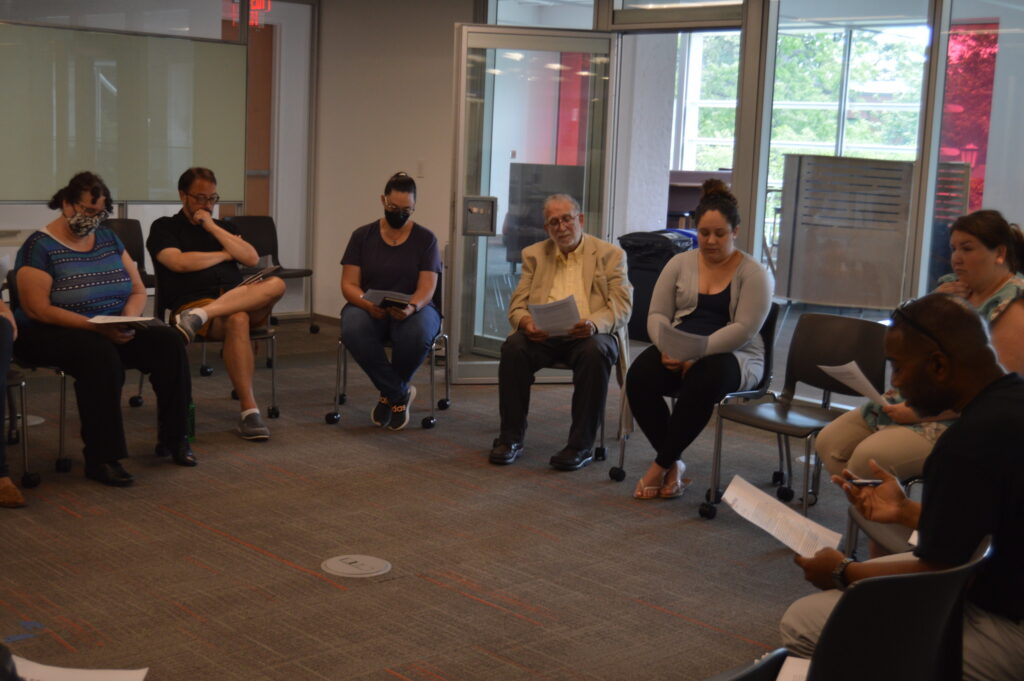
Springfield College once again recognizes the many people and programs who are advancing the causes of freedom and equity, on which the future of our country and our College depend.
With June 19 falling on a Sunday, the College acknowledged Juneteenth on campus on Friday, June 17 with a book discussion of Anette Gordon-Reed’s New York Times bestselling book, On Juneteenth. Campus community members joined Vice President for Inclusion and Community Engagement Calvin R. Hill, PhD, in the Harold C. Smith Learning Commons Forum for an exploration into the author’s historical perspective of the nation’s long road to recognizing Juneteenth as a federal holiday.

June 19—Juneteenth — is a federal holiday acknowledging the emancipation of those who had been enslaved in the United States. Also known as Freedom Day, Jubilee Day, Liberation Day, and Emancipation Day, Juneteenth was officially recognized as a national holiday in 2021. The date is meaningful as it has been identified as the date on which news finally reached enslaved communities in Galveston, Texas, in 1865, two-and-a-half years after the Emancipation Proclamation was signed on Jan. 1, 1863.
Juneteenth is the first new federal holiday to be established since 1983, when the birthday of Martin Luther King Jr. was approved. Similar to the King holiday, Americans have been called upon to acknowledge Juneteenth as a “day on, not a day off,” focusing our time on the idea of service to others. On June 19, Americans are encouraged to gain a deeper historical appreciation and understanding into the lives and lived experiences of African Americans.







